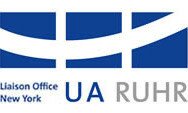|
|
Flagship Program Materials Chain
|
The University Alliance Ruhr’s Flagship Program Materials Chain bundles and strengthens the research activities in the field of materials science at the three universities of Dortmund, Bochum and Duisburg/Essen. The goal of the collaboration is to reach a complete and concise description of the whole materials chain – from atoms to finished technical components and vice versa.
|
| About the Flagship Program Materials Chain |
|
|
The introduction of innovative materials is a substantial part of the Ruhr Area’s history. Highly innovative products from the Ruhr Area, like seamless railway tires, stainless steels or carbides, functioned as growth engines for all of Germany. The success story of automobile manufacturing in Germany, which continues to this day, can ultimately be traced back to the developments of the material- and metalworking industry and hence to the Ruhr Area. The traditional focus on materials is still shaping the Ruhr Area’s academic landscape today, as the three UA Ruhr universities maintain research facilities with a material-scientific setting of priorities that enjoys worldwide recognition. Within this environment, a multitude of scientists significantly strengthens this field of research with their achievements. At the TU Dortmund, numerous institutes and chairs, mainly affiliated with the Faculty of Mechanical Engineering, are concerned with the processing and coating of materials. Within long-term project-collaborations like the (TR-)SFBs, the scientists address matters like the structures of lightweight constructions, the engineering of surfaces and the development of resource-efficient products in their studies. The gained insights are reported back to the material developers to achieve a specific optimization of the demand profile. The Ruhr-Universität Bochum has condensed its material-scientific activities within the interdisciplinary Materials Research Department, where scientists from nearly all faculties with an engineering or natural-science orientation collaborate. This faculty-spanning department is complemented by the Interdisciplinary Centre for Advanced Material Simulation (ICAMS), where scale-bridging simulations are conducted, and by the research building ZGH (Zentrum für grenzflächendominierte Höchstleistungswerkstoffe, Center for Interface-Dominated High Performance Materials), that will go into operation with unique equipment in 2018. The outstanding research activities in materials sciences at the Universität Duisburg/-Essen focus on the production, functionalization, characterization and integration of nanoparticle materials. The interdisciplinary research in this area is coordinated by the Center for Nanointegration Duisburg-Essen (CENIDE), where a unique infrastructure, including, for example, the DFG equipment site Interdisciplinary Center for Analytics on the Nanoscale (ICAN), enables researchers to examine effects on the smallest dimensional scales. These research activities are spatially and functionally integrated into the recently established research facility NETZ (NanoEnergieTechnikZentrum). The area of materials simulation is complemented by the Center for Computational Sciences and Simulations (CCSS). In addition to this, all “Materials Chain” sites host numerous projects like SFBs, international graduate schools and other major projects that are already partially aligned across locations. More information about the Flagship Program Materials Chain: MATERIALS-CHAIN.ORG |
|









